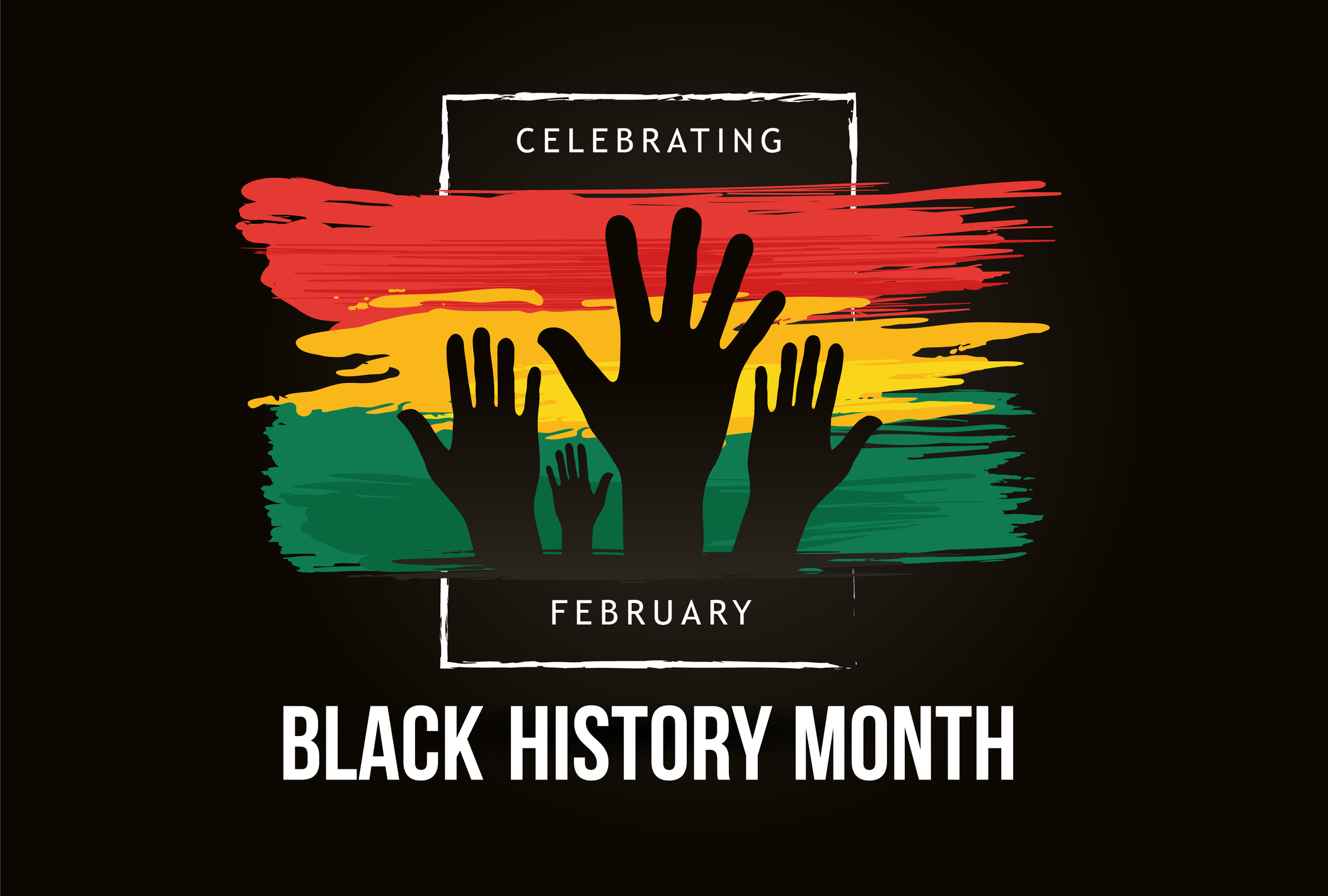Black History Month
News Based on facts, either observed and verified directly by the reporter, or reported and verified from knowledgeable sources.
A case of remembrance and resilience

Good morning! Today is Tuesday, February 15, and you are reading today’s section of Examiner+, a digital newsmagazine serving Westchester, Putnam, and the surrounding Hudson Valley.
Need to subscribe — or upgrade your Examiner+ subscription to enjoy full access to all of our premium digital content? Details here.
By Derek H. Suite, M.D.

Black History Month pays homage to the remembrance of a people whose history is defined by resilience: the ability to adapt, bounce back, and grow in the face of threats, tragedy, and trauma. In Black History, resilience implies an ability to adapt and cope effectively with the catastrophic consequences and sorrowful legacies that crosslink slavery and racism. It is not common practice to explore links between “remembrance” and “resilience,” during Black History Month as there are seemingly more important historical events and milestones that deservedly merit the spotlight. Yet, the remarkable ability of Black people to draw strength from the connection between remembrance and resilience offers insight into the inner sanctums of their unshakable faith and indomitable will.
Birthed from the chattel of slavery, in the bellies and souls of a people denied all rights and freedoms, the seeds of resilience took root, germinating with the forceful removal from Africa, pollinating through the merciless middle passage, and defiantly blossoming despite the onslaught of torturous treatment on the plantation. Black History Month celebrates the fruit of this historic resilience with its remembrances of iconic leaders — Tubman, Parks, Douglas, King, Malcolm X, Baldwin, Ashe, and Angelou, to name a few.
In a curious “meta” process, the world has been invited into the Black history experience as everyone has been forced to taste the fruit of resilience after experiencing the loss of freedoms and life-threatening challenges associated with the COVID-19 pandemic. Propelled by a desire to survive, we hesitantly accepted being punctured, initially thinking we would be free of this problem, only to eventually cling to a dubious solace that being masked, gloved, restricted, isolated, punctured, and re-punctured did not mean “freedom” from infection and restrictions. We wrestled with the grim reality that there is no such thing as being “free” (Not even the booster could emancipate us from this oppressive virus. The best we could hope for is that we would not become sick enough to die.) In this adapt-or-die scenario, we, though shackled by the threat of infection, have found resilience. We, like those who are trapped and enslaved, have learned to find a way to sing songs, appreciate the little things, and make life work, even if it means putting on the masks daily, avoiding crowded spaces, keeping hands clean, and not touching strangers. Loss of freedoms, pain, and suffering, we have learned, are the strange seeds that bear the fruit of resiliency — the fruit we must now eat to protect against the disillusionment, despair mental decline associated with the long-term battle with COVID-19.
“Nonetheless, the pandemic experience arguably brought the world one step closer to a “meta understanding” of what it means to be enslaved by a vicious and merciless force that abruptly ripped us from the safety and security of the lives we once enjoyed, restricted our freedoms, disrupted our families, denied us the right to independently assemble.”
To be clear, although pandemic resiliency and the resiliency of Black History share some interesting similarities, they are by no means the same thing. For starters, the current pandemic will eventually end, or be reduced to an innocuous medical condition, thanks in large measure to the immunizations. Regrettably, there is not (and never will be) a vaccine to stop the virulence of pathologic racism, which has deliberately infected nearly every aspect of American culture. Unlike COVID-19, racism is actively perpetuated, especially by those who have benefited from it since the arrival of the first group of Africans to Jamestown, Virginia in 1619. Nonetheless, the pandemic experience arguably brought the world one step closer to a “meta understanding” of what it means to be enslaved by a vicious and merciless force that abruptly ripped us from the safety and security of the lives we once enjoyed, restricted our freedoms, disrupted our families, denied us the right to independently assemble. The viral slave master even tried to take control of our airspace, necessitating the need to wear a mask. Mask mandates infuriated many who publicly refused to obey the dictates of a “viral slave-master” as they fought to protect their right to their freedom to choose and the right to breathe freely. Public outrage heated up to volcanic proportions as a horrified world witnessed the last breath escape the lungs of George Floyd who lay helplessly on the ground with a knee in his neck as he was suffocated to death. Once again, the world was invited into the meta experience of Black History, which is replete with equally gruesome murders of black men, women, and children. Floyd’s murder ignited multiple demonstrations around the globe and an array of racial bias, equity, and decimation initiatives, including defunding the police, having “uncomfortable conversations,” and hiring more diversity officers.
For Black slaves living during the era of slavery who undoubtedly had similar feelings of outrage, experiencing ongoing fears, losses, restrictions, atrocities, and tragedies, there was no option to use civil disobedience, express public outrage, or have an “uncomfortable conversation”. Death and dismemberment were the punishment and penalty for such actions back then — and still are, some argue, pointing to a more recent history of lives lost in the struggle for freedom during the modern civil rights movement (1954-1868) and the ostracizing of those who publicly declare that Black Lives Matter. Like our heroes risked and lost their lives in the fight for health during the COVID-19 pandemic, activist-leaders throughout Black History also risked their lives in the fight for freedom. Unlike our pandemic heroes who were admired and lauded unanimously for their courage and sacrifice in real-time, Black leaders were often maligned and murdered when choosing to fight for freedom and justice in real-time. This legacy of Black lives maligned and murdered during the era of slavery (and beyond) is among the most painful of remembrances punctuating Black History Month, which celebrates the accomplishments and resiliency of so many Black pioneers, activists, and leaders.
Sobering as the remembrances of the pain and suffering might be, they are the foundation on which a rugged resiliency has been planted in the minds, hearts, and souls of Black Americans to withstand and endure the avalanche of adversities associated with government-sanctioned slave trading, the legally sanctioned Jim Crow era, the massive undertaking of the civil rights movement and the death of so many black lives across American History, with the most recent, tragic deaths of young black people within the last decade (Eric Garner, Michael Brown, Tamir Rice, Breonna Taylor, Alston Sterling Philando Castile, to name a few).
Faced with the prospect of being jailed or killed on any given day due to a racially motivated encounter, Blacks have ruggedly employed COVID-like precautions including masking of feelings, being vigilant in crowded spaces, recognizing the work of unclean hands, and keeping a safe distance. Rugged resilience in Black History also actively incorporates “re-membering” those who have fallen –and those who have been psychologically, socially, and historically “dis-membered.”
Remembrance creates a spiritual awareness that strengthens resilience because such purposeful reflection intensifies the significance and meaning of the challenge or misfortune. It also strengthens a sense of inspiration as one contemplates the ancestral experience and journey, including the obstacles they had to face and the path they followed to achieve their goals. The practice of remembrance also fosters resilience that derives power from a shared identity that forms the basis of shared coping characterized by a willingness to sacrifice personal interests for the sake of togetherness and unity.
Ultimately, remembrance boosts resilience with empathy and compassion that propel the irrepressible ideological intent and undaunted determination celebrated in Black History Month. Perhaps, within the historical haze of a resilience remembered, lies the power of Black resilience, which, in the words of poet laureate Amanda Gorman, can help a people source solace from sorrow.

Derek H. Suite, M.D. is a board-certified, performance psychiatrist and an assistant clinical professor with Teachers College, Columbia University. He is the founder of Full Circle Confidential, which provides executive leadership coaching and comprehensive mental performance consultation to professional sports and entertainment organizations. He lives in Westchester with his wife Darcel,
We hope you’ve enjoyed today’s section of Examiner+. What did you think? We love honest feedback. Tell us: examinerplus@theexaminernews.com

Examiner Media – Keeping you informed with professionally-reported local news, features, and sports coverage.
